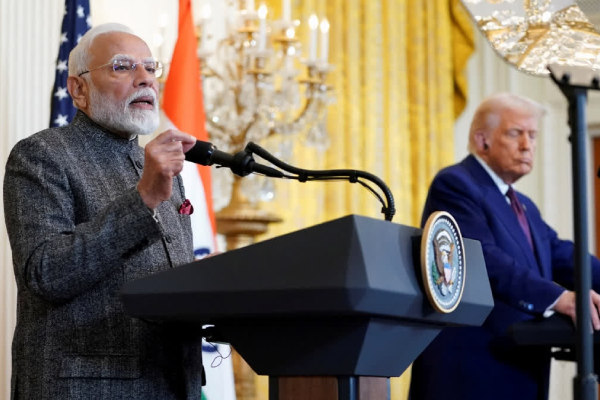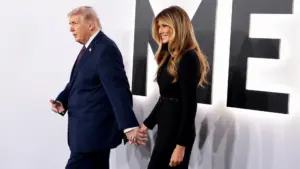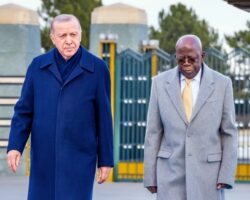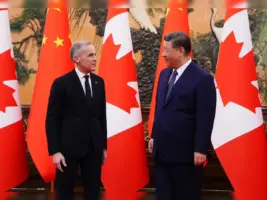The Indian government said it would take necessary steps to protect its national interests after Donald Trump imposed a 25% import tariff on the South Asian country in a stinging rebuke that also targeted New Delhi’s ties to Russia.
The Narendra Modi government said it was evaluating the implications of the American president’s decision, which was announced just before the August 1 deadline for his new tariff regime to take effect, while continuing to conduct “negotiations on concluding a fair, balanced, and mutually beneficial bilateral trade agreement”.
New Delhi had been negotiating a trade deal with Washington for months before Mr Trump announced the tariff.
The talks were set to resume next month and Indian officials expected a deal to be reached by September or October.
In a social media post announcing the new tariff, Mr Trump accused India of enforcing the “most strenuous and obnoxious” regulatory hurdles of any country. He said he was imposing a 25 per cent levy on Indian exports to the US and an undefined penalty for New Delhi’s energy and military purchases from Russia.
“While India is our friend, we have, over the years, done relatively little business with them because their Tariffs are far too high, among the highest in the World, and they have the most strenuous and obnoxious non-monetary Trade Barriers of any Country,” Mr Trump posted on his Truth Social platform.
“Also, they have always bought a vast majority of their military equipment from Russia, and are Russia’s largest buyer of ENERGY, along with China, at a time when everyone wants Russia to STOP THE KILLING IN UKRAINE — ALL THINGS NOT GOOD!”
The US has a trade deficit of $45.7bn with India.
Read Also
In a speech to parliament on Thursday, commerce and trade minister Piyush Goyal stated that New Delhi is no longer a “fragile economy” and is on track to become the world’s third largest economy.
Other Asian economies, such as South Korea, Japan, and Indonesia, have agreed to lower rates.
The ministry of commerce and industry is holding talks with exporters, industries and all stakeholders and gathering information on their assessment of this issue.”
Mr Goyal emphasised the government was committed to safeguarding the welfare of the country’s farmers and labourers.
In the five rounds of talks held so far, agriculture and dairy remained a major sticking point as the US sought greater access to the Indian market for its farm exports like wheat, corn, cotton, and genetically modified crops.
India, however, insisted that the agriculture and dairy sector were off-limits.
The sector employs over 80 million people in the country who will be prepared to take to the streets in protest if a deal is perceived to be detrimental to their interests.





